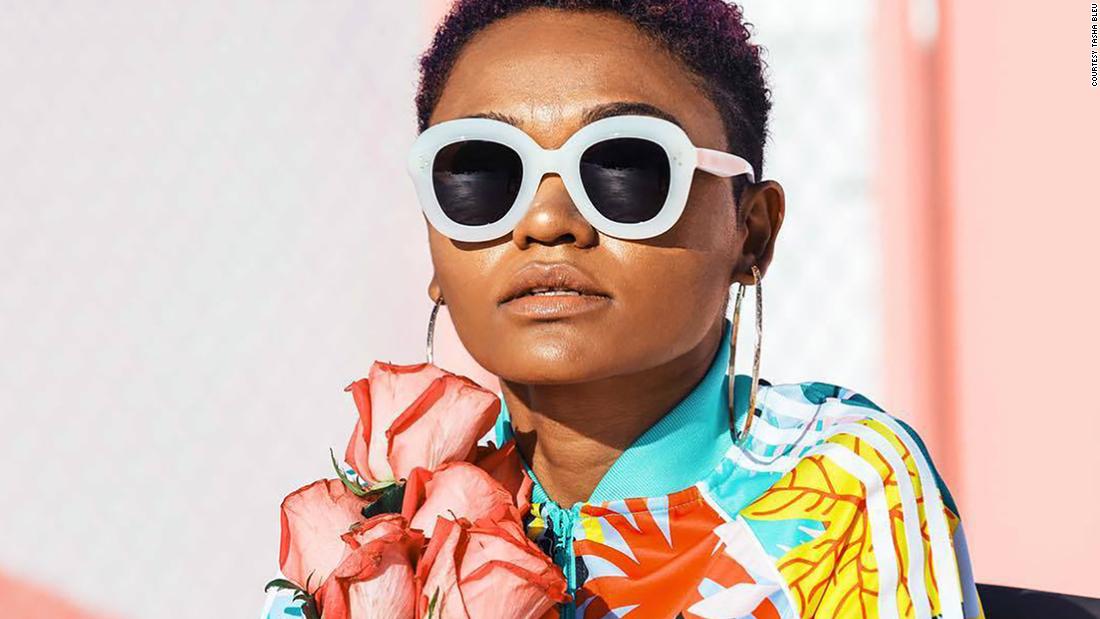(CNN) Lauren “Lolo” Spencer was the kind of energetic girl you’d find on the playground. She loved running, street hockey and dancing. But when she turned 14, she started feeling fatigued and noticed her muscles were weakening, and she became concerned.
“One night, I reached over to get a plate from the cupboard and my hand fell on the counter. My arm just fell off.”
Doctors diagnosed her with amyotrophic lateral sclerosis (ALS, also known as Lou Gehrig’s disease), a neurodegenerative disease that weakened the active teen’s muscles, and by age 19, she was using a wheelchair to get around.
People with ALS typically survive two to seven years after diagnosis, but Spencer isn’t a typical patient: She’s been living with the disease for 18 years.
“Thankfully, my body is changing very slowly. I’m just determined to live life to the fullest.” [ALS] That wouldn’t have been my story.”
Lauren Spencer began noticing “strange changes” happening to her body when she was a teenager.
Now in her early 30s, Spencer lives alone but admits it’s not easy.
By following her, you will understand her challenges.
On a recent Friday, she was looking for a place to get a tattoo in her neighborhood. At a tattoo parlor, she had to park her wheelchair an arm’s length from the door. She put her right arm, weakened by ALS, around the handle and took a moment to get a firm grip before leaning her chair back to open the door.
View this interactive content on CNN.com
This is a training she has received at many of the stores she frequents. “Discrimination between people doesn’t always have to be blatant, like access to buildings, public transportation, or noticing that there are no steps on the sidewalk to cross the street.”
Spencer has used a wheelchair for 12 years and knows all about the daily struggles that come with a disability, but initially struggled to find answers and help online.
“There weren’t many people talking about the lives of people with disabilities or their personal experiences. No one was really talking about it.”
So she turned to social media and started sharing her true self: through her Instagram account @itslololove and YouTube channel Sitting Pretty, she offers insight, advice and support to the disability community.
Comfortable seating
Inside the tattoo shop, Spencer was getting a memorial tattoo in memory of Nipsey Hussle, the hip-hop artist who was shot and killed in March.
“I want to get a tattoo like Nipsey got that says, ‘God has got me,'” she said. “I met him a few times and he was an inspiration to me.”
Like Hussle, Spencer wants to make a positive impact in her community. With over 11,000 followers on Instagram and 10,000 subscribers on YouTube, Spencer is riding the “influencer” wave, but the core of her content is being a “disability lifestyle influencer.”
“I do product reviews, life hacks, dating and relationship advice, and just general life advice because navigating society as a disabled person can be difficult with so many stereotypes and assumptions.”
One of the ways Spencer tries to change people’s perceptions of people with disabilities is by being upbeat. Her Instagram account features pictures of her traveling with friends, going to fashion shoots, and going out clubbing. She says that too often the stories surrounding her community are very dark or have a “sympathy tone.”
“I’m not sad about my life. I’ve learned to accept my disabilities, have fun and be positive.”
Spencer enjoys modelling because it helps people see people with disabilities in a different light.
Fly and fashionable
Spencer has also been shining a different light on people with disabilities through her modelling work for companies like Tommy Hilfiger and Adidas.
“Modelling is so important to show that people with disabilities are fashion consumers just like everyone else. We can be just as cool and stylish as anyone else on the planet.”
The only thing Spencer doesn’t want to represent is “inspiration porn.”
“It’s a term used within the disability community to inspire anything a disabled person does. They say, ‘Wow, that’s impressive you can feed yourself’. Is that brave or are they just hungry?”
Spencer says she sees her disability as “an honor, not a burden,” and she believes it’s their optimism that makes many people in the disability community special.
“Despite certain limitations, we can live our lives as productively as we can,” she said. “We can thrive, we can be entrepreneurs, we can have an impact, we can reach our full potential. I’m living the best life I can with what I have.”

